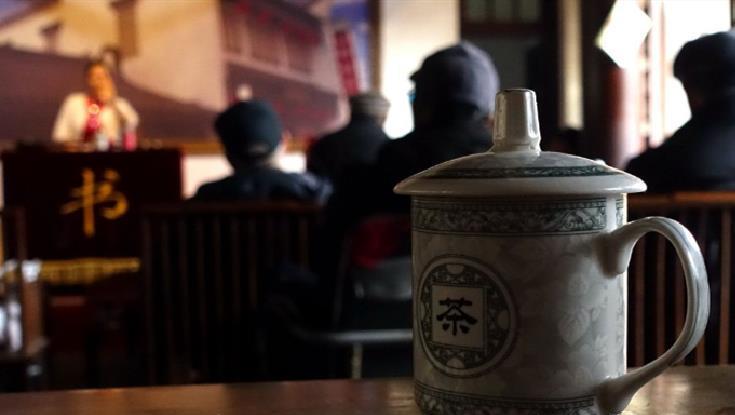
Once upon a time, when people's amateur life was not as rich as it is today, it was a very pleasant thing to sit in a tea house and eat melon seeds, drink tea, and listen to books.
At that time, the book review was the most popular in the category of famous heroes, and gradually, through the influence of the book review, more and more heroic characters were well known to everyone, and there were more of them
"The king is not too strong, the strength is not hegemonic, the general will not be Li, the fist will not be gold"
So who are they?
The first one: The king is not a button
Wang But Xiang everyone should be able to guess that this item refers to Xiang Yu, the king of Western Chu.
Although Xiang Yu did not establish a dynasty, his bravery is very familiar to everyone, for the ideal in his heart, he set a number of records, especially the "Battle of the Giant Deer", it can be said that he single-handedly reversed the situation, so in the historical records he was also divided
In the "Honki", which symbolizes the status of the emperor.
Wang Zhixiang means that Xiang Yu, as one of the hundreds of kings in China throughout the ages, his personal strength is incomparable to that of other kings, and he once killed hundreds of soldiers of the Han army in the last battle of Wujiang, relying on his own divine strength.
The second one: not overpowering.
This bully is talking about Li Yuanba. It is the youngest son of Li Yuan in the "Sui and Tang Dynasties", so he is not as mature and stable as his brothers, but he is a typical martial artist who likes to test martial arts with people everywhere, so he has no opponents to match in the Sui and Tang dynasties.
You must know that the famous general Qin Qiong is already very powerful, his double hammer rarely meets the opponent, and Qin Qiong was shocked to fly the weapon in his hand in just a few simple rounds in the fight with Yuwen Chengdu.
However, Yuwen Chengdu was easily killed by Li Yuanba for several rounds, which shows the big gap between other people and Li Yuanba.
However, the storyteller sometimes talks too excitedly, which will seem too exaggerated, which says that Li Yuanba single-handedly rode to summon the Eighteen-Way Anti-King, and one talked unhappily
Kill hundreds of thousands of anti-king troops like hammer ants
。 Nevertheless, the title of Force But Bully is indeed well deserved.
Third: will not be Lee
This Li is Li Cunxiao.
In the late Tang Dynasty, various warlords began to adopt their sons to fight for their lives in order to stabilize their own power, and Li Cunxiao was the adopted son of The famous warlord leader Li Keyong, and the most famous of the "Thirteen Taibao".
Don't underestimate the identity of this adopted son, grasp it well and even have the possibility of asking for the throne, for example, the Southern Tang Liezu was just a boy who fell into a ruined temple at first, and then he was adopted by the famous general Xu Wen before he began to get lucky. In addition, there is zhu Yuanzhang, the founding emperor of the Ming Dynasty, although he is not the righteous son of Guo Zixing, but his son-in-law, and finally achieved hegemony.
And this Li Cunxiao was known for his bravery and invincibility, and was a famous general at that time, and later caused his adoptive father Li Keyong to be jealous and put him to death, which was a pity.
Fourth: Punch not gold
This Kim is talking about Jintai.
Speaking of Jintai, I have to say that he has another title
"The First Man of Chinese Martial Arts".
He was not only a martial artist, but also a general, and his boxing skills were widely spread, and he was widely accepted as a disciple, and at that time, his reputation was no less than that of today's Wing Chun master Ip Man.
The reason why I say this is because there are some celebrity bowls in his disciples and disciples.
For example, Lu Junyi, Lin Chong, Yue Fei and others we know well are his disciples.
summary
The words of the commentary are explained as follows: A storyteller, through the narration of the plot, the description of scenes and other artistic means, to show the audience historical events, celebrities and other stories, is a kind of music art.
From the beginning of the Song Dynasty, because the imperial court emphasized literature and suppressed martial arts, the development of science and technology and economy at that time was relatively rapid, the Song Dynasty people were relatively rich, the way of entertainment and recreation became more diversified, and many folk music arts began to develop. The commentaries that originated in the Eastern Zhou Dynasty also caught up with this trend and became a more important way of pastime in people's lives at that time.
The storyteller will collect some strange things that people gossip about after tea and dinner, and then go through a mixture of choreography to finally present a wonderful interpretation to people.
Because of this, the content of the commentary is somewhat exaggerated and magical, but this does not affect people's enthusiasm for it, and it also expresses the lack of people's spiritual world at that time.
And today we are talking about these 4 historical figures, but also the reviewers like to interpret a few, so what is everyone's evaluation of these people? Will it be the same as in the commentary?
References: History of the Song Dynasty, New Book of Tang, History